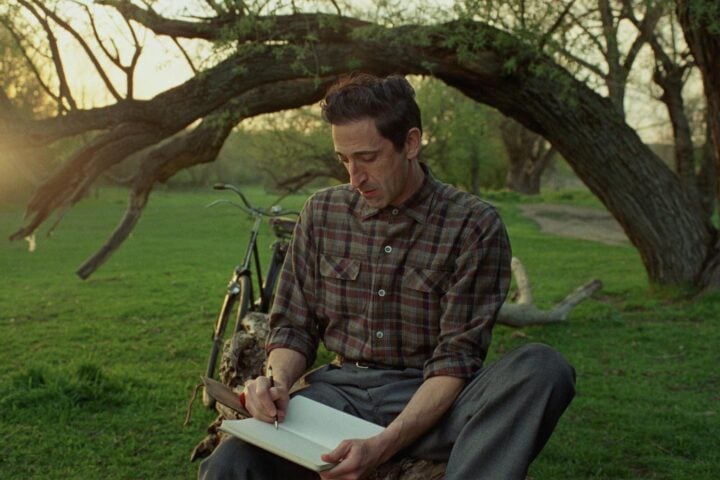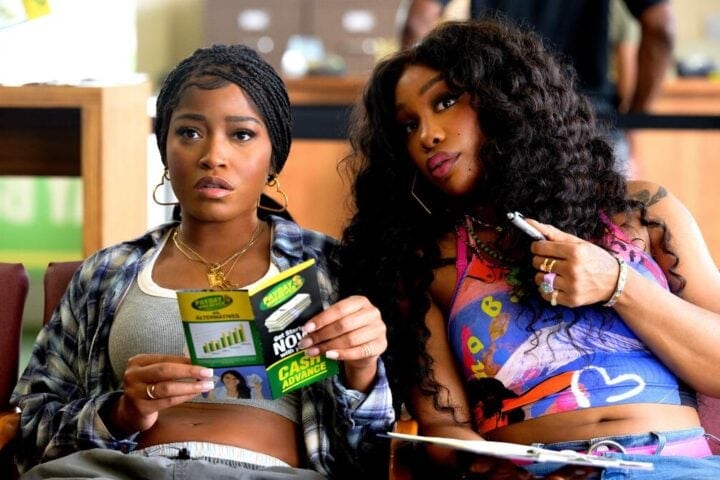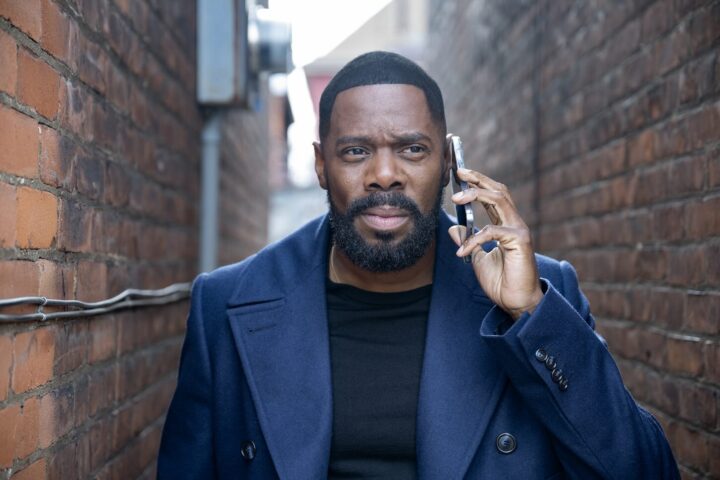Following the respite of a pair of comparatively quiet bottle episodes, filmed during the height of the pandemic and released at the end of 2020, Euphoria leans back into maximalism in its second season. It begins with the memorable backstory of young Fezco’s (Mason Shea Joyce) gun-toting, drug-dealing grandmother (Kathrine Narducci) and the lessons she taught him about the drug trade. The flashbacks immediately situate the viewer back into the show’s modus operandi of explicit depictions of nudity, violence, and drug use, but they also tenderly reveal the older Fezco (Angus Cloud) and Ashtray’s (Javon Walton) origin story and showcase the richness of series creator Sam Levinson’s character writing.
Much of Euphoria’s second season is likewise a balance between Levinson’s impulse toward lavish theatricality and the affecting character moments that lie at the heart of the show. Whereas season one focused primarily on Rue (Zendaya) and Jules (Hunter Schafer), the show’s sophomore season broadens the scope, employing concurrent storylines that often shift from the ups and downs of Rue and Jules’s relationship to subplots involving high school jock Nate’s (Jacob Elordi) clandestine relationship with Cassie (Sydney Sweeney) and the origins of his father’s (Eric Dane) sexual repression.
Cal contending with the consequences of his delayed adolescence works to humanize a character that, in Euphoria’s first season, felt like a one-dimensional villain, and while the shift is consistent with the show’s empathy, his catharsis comes about too quickly, summed up in a single episode. Sweeney, on the other hand, is given ample space to allow Cassie’s self-loathing and anxiety to gradually and organically tip over into Carrie-at-the-prom-like levels of hysteria.
It’s not surprising that the season gains a clearer focus as it homes in on Rue’s relapse, resulting in some of the most harrowing episodes in the series to date. Rue is deeply flawed, and the question Levinson asks is whether or not she can be forgiven. The theme of forgiveness, in fact, is threaded throughout the entire season. Some of the characters, like Rue’s NA sponsor, Ali (Colman Domingo), find it in themselves to forgive, while others, like Rue’s sister, Gia (Storm Reid), have a harder time of letting go of their resentment for the damage she’s inflicted.
From Rue’s fourth-wall breaking remark that she’s a “fan favorite” who “a lot of people are rooting for,” to the school play that takes place in the penultimate episode of the season, there’s no shortage of self-aware meta-commentary on the drama that unfolds. Montages soundtracked to a litany of pop songs, like Rue’s vision of stepping down a church aisle after getting high and Cassie’s darkly vacant stare into a flower-adorned mirror, are striking audiovisual devices but too often feel like shortcuts for character development.
This speaks to the larger issue of how abrupt the plot developments feel following the detailed character work of the first season. This rings especially true with the case of Rue and Jules, whose romance largely remains in stasis. The introduction of charismatic enabler Elliott (Dominic Fike) seems designed to shake up their relationship but ultimately serves to highlight that nothing much of note happens between Rue and Jules until season’s end.
There are subtle aspects of the new season, like its approximation of Twitter discourse and its commentary on the self-care trend, that lend it a sense of lucidity even as its portrait of modern teen life grows more dreamlike. The series doubles down on staking its claim as the classiest and most artistic form of the lowbrow high school drama ever, but what lies beneath the debauchery is a powerful dramatic core, particularly in the story of Rue, as she navigates her relapse in ways that betray the faint optimism beneath all the teenage decay.
Since 2001, we've brought you uncompromising, candid takes on the world of film, music, television, video games, theater, and more. Independently owned and operated publications like Slant have been hit hard in recent years, but we’re committed to keeping our content free and accessible—meaning no paywalls or fees.
If you like what we do, please consider subscribing to our Patreon or making a donation.





